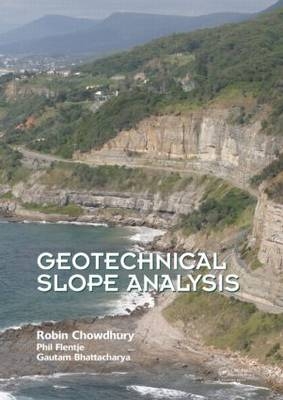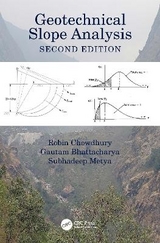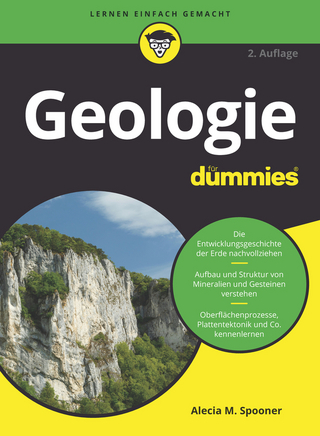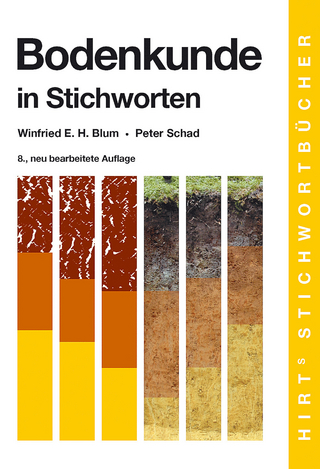
Geotechnical Slope Analysis
CRC Press (Verlag)
978-0-415-46974-6 (ISBN)
- Titel erscheint in neuer Auflage
- Artikel merken
Freshly updated and extended version of Slope Analysis (Chowdhury, Elsevier, 1978). This reference book gives a complete overview of the developments in slope engineering in the last 30 years. Its multi-disciplinary, critical approach and the chapters devoted to seismic effects and probabilistic approaches and reliability analyses, reflect the distinctive style of the original. Subjects discussed are: the understanding of slope performance, mechanisms of instability, requirements for modeling and analysis, and new techniques for observation and modeling. Special attention is paid to the relation with the increasing frequency and consequences of natural and man-made hazards. Strategies and methods for assessing landslide susceptibility, hazard and risk are also explored. Moreover, the relevance of geotechnical analysis of slopes in the context of climate change scenarios is discussed. All theory is supported by numerous examples.
''...A wonderful book on Slope Stability....recommended as a refernence book to those who are associated with the geotechnical engineering profession (undergraduates, post graduates and consulting engineers)...'' Prof. Devendra Narain Singh, Indian Inst. of Technology, Mumbai, India
''I have yet to see a book that excels the range and depth of Geotechnical Slope Analysis... I have failed to find a topic which is not covered and that makes the book almost a single window outlet for the whole range of readership from students to experts and from theoreticians to practicing engineers...'' Prof. R.K. Bhandari, New Delhi, India
Dr. Robin Chowdhury is well known internationally as a geotechnical engineer and scholar, and is Emeritus Professor at the University of Wollongong, Australia. He completed his PhD at the University of Liverpool, UK in 1970 and has devoted more than three decades to teaching, research and scholarship. His early work was concerned with factors influencing slope stability, landslide occurrence and mechanisms and with the concepts and methods of deterministic geotechnical analysis. Subsequently he devoted considerable attention to the development and application of probabilistic approaches and reliability analysis. He also made a sustained contribution to the understanding and simulation of progressive failure. In recent years Robin has emphasized the linking and integration of regional slope studies with site-specific slope engineering assessments. He has also advocated the adoption of an interdisciplinary approach for geotechnical engineering projects and, in particular, for landslide management. His recent work has been concerned with the assessment of geotechnical hazard and risk as well as with observational approaches which include modern methods of field monitoring. Dr. Phil Flentje is a recognised expert in Slope Engineering and Landslide Management, and a Senior Research Fellow at the University of Wollongong, Australia. His education and training is in Engineering Geology and Geotechnical Engineering. He completed his PhD at the University of Wollongong (NSW, Australia) in 1998. He developed a comprehensive GIS-based approach for regional studies concerning the occurrence, frequency and impact of landslides. In his subsequent work he has developed models for the use of landslide inventories, the assessment of landslide susceptibility, hazard and risk. His current activities include webbased real-time monitoring of slope deformations, pore pressures and associated structural displacements as part of a regional assessment of landslide activity and frequency. His research also embraces analysis of rainfall with its spatial and temporal variability and landslide-triggering rainfall thresholds/alerts. Dr. Gautam Bhattacharya is an experienced academic and researcher, and currently the Head of the Department of Civil Engineering, BESU, Shibpur, and also the Vice-Chairman, Calcutta Chapter of the Indian Geotechnical Society. His interest in the subject of slope stability developed during his doctoral research at IIT Kanpur (1985–1990). His thesis was concerned with the application of numerical methods in slope analysis. He has since been engaged in teaching this subject and in pursuing research on both deterministic and probabilistic approaches of analysis of unreinforced and reinforced slopes under static and seismic conditions. He has teaching, research and consultancy experience in the field of geotechnical engineering for about three decades.
1. Aims and overview – slopes, geology and materials; 2. Basic geotechnical concepts; 3. Performance indicators and basic probability concepts; 4. Limit equilibrium methods I – planar failure surfaces; 5. Limit equilibrium methods II – general slip surfaces and beyond critical equilibrium; 6. Stress-deformation analyses and their role in slope analysis; 7. Natural slope analysis considering initial stresses; 8. Plasticity and shear band analyses – a brief review; 9. Earthquake effects and seismic slope analysis; 10. Probabilistic approaches and reliability analyses; 11. Case studies of urban slope stability; 12. Summing up; References; Subject index; Colour plates
| Erscheint lt. Verlag | 18.11.2009 |
|---|---|
| Verlagsort | London |
| Sprache | englisch |
| Maße | 174 x 246 mm |
| Gewicht | 1632 g |
| Themenwelt | Naturwissenschaften ► Geowissenschaften ► Geologie |
| Naturwissenschaften ► Geowissenschaften ► Geophysik | |
| Technik ► Bauwesen | |
| Technik ► Umwelttechnik / Biotechnologie | |
| Weitere Fachgebiete ► Land- / Forstwirtschaft / Fischerei | |
| ISBN-10 | 0-415-46974-0 / 0415469740 |
| ISBN-13 | 978-0-415-46974-6 / 9780415469746 |
| Zustand | Neuware |
| Informationen gemäß Produktsicherheitsverordnung (GPSR) | |
| Haben Sie eine Frage zum Produkt? |
aus dem Bereich



